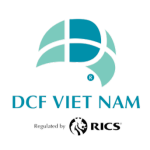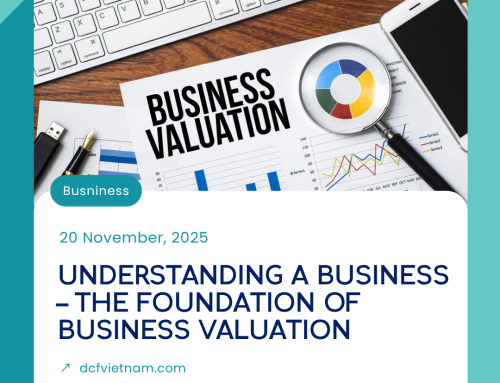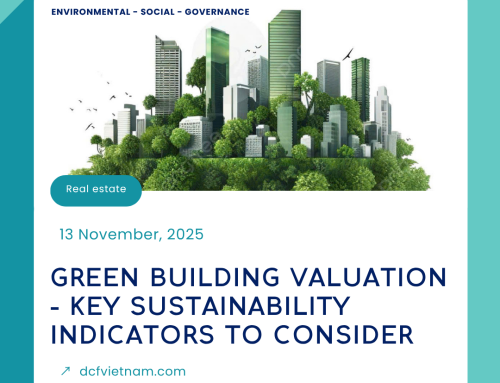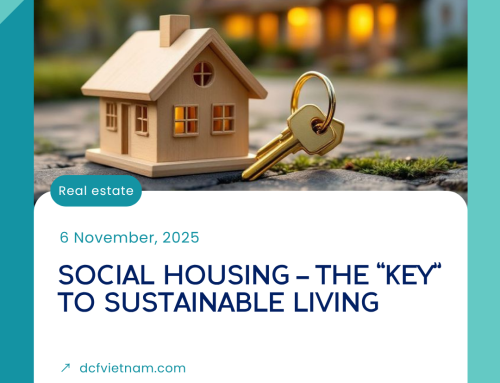The Vietnamese real estate market has long faced issues of information asymmetry and lack of transparency. Buyers struggle to access accurate selling prices, and speculative price inflation is common. These factors hinder sustainable market growth and increase risks for investors, regulators, and customers. In this context, blockchain technology emerges as a potential breakthrough, offering solutions to many challenges related to transparency, legal procedures, and administrative complexity, paving the way for a more sustainable real estate market in Vietnam.
Current Legal Framework and Gaps
In 2025, the Government issued the Law of Digital Technology Industry (2025) – effective from 2026 – recognizing tokenized digital assets as a form of civil property. In the same year, Resolution No. 05/2025/NQ-CP (09/09/2025) introduced a five-year pilot program for the digital asset market to encourage research and application of blockchain technology.
However, Vietnam still lacks a comprehensive legal framework that directly regulates blockchain in real estate. Existing documents provide only strategic direction and remain short of detailed regulations for tokenization, smart contracts, or investor protection.
How Real Estate Transactions Work Today
Most real estate transactions in Vietnam still rely on traditional paper contracts and manual notarization. From making deposits to signing agreements, transferring ownership, and completing registration, every step requires multiple administrative processes. This not only consumes significant time but also generates high intermediary costs.
Transparency is another concern. The actual market price of a property often differs from the amount recorded in contracts, making it difficult for buyers to determine a fair value. Furthermore, the risk of disputes remains high as falsified documents or inaccurate information can sometimes bypass manual verification. These limitations reduce investor confidence and obstruct the sustainable development of the Vietnamese real estate market.
 |
|
|
| Ha Hong Yen – Associate Director
& Huynh Le My Tien |
|
|
| DCF VIETNAM CORPORATION
📍 46F Bitexco Tower, 2 Hai Trieu, 📩 yen.ha@dcfvietnam.com 📞 +84 965 30 44 30 |
Implementing Blockchain in Real Estate Transactions:
Tokenized Real Estate
One of blockchain’s most notable applications is real estate tokenization. Under this model, a property is divided into multiple tokens, each representing a fraction of the asset’s value. Investors can participate in large projects with small capital instead of purchasing an entire property. Transactions occur through smart contracts and digital wallets, enabling peer-to-peer connections without brokers or traditional exchanges. The adoption of Resolution 05/2025/NQ-CP provides the initial legal foundation for pilot programs, allowing tokenization to move from theory to practical implementation.
Digital Land Title on Blockchain
Parallel to tokenization, the development of digital land titles using blockchain marks another important breakthrough. Ownership and transfer rights can be recorded immutably, preventing forgery or unauthorized changes. This makes it easier for government agencies, banks, and individuals to verify property origins and reduce disputes. When integrated with Vietnam’s existing land registration system, digital land titles can create a unified database, supporting more efficient state management and real estate transactions.
Smart Contracts
To link these innovations, smart contracts play a key role. These self-executing agreements automatically fulfill terms once predefined conditions are met – such as transferring ownership immediately after full payment. Automation shortens processing time, lowers costs, and reduces human error, ensuring a secure and transparent transaction process for all parties.
How Blockchain Will Impact the Real Estate Market?
Key Benefits
Applying blockchain technology brings significant added value to the real estate market, especially as current transactions still depend heavily on paper contracts and traditional procedures. The most notable advantage is transparency: all information about transactions and ownership is permanently recorded on the blockchain and cannot be altered or falsified. This allows investors, regulators, and other stakeholders to quickly verify data, reducing disputes and fraud.
Blockchain also shortens transaction time and lowers costs by eliminating many intermediaries and administrative steps, making the buying–selling, and ownership transfer process more efficient and cost-effective. Another major benefit is increased liquidity. Through real estate tokenization, investors can own a fractional share of a project rather than purchasing an entire property. This model expands market access to smaller investors and enables more flexible trading. Immutable blockchain data combined with self-executing smart contracts further reduces legal risks, as all terms are automated and publicly verifiable. Importantly, Resolution No. 05/2025/NQ-CP provides an initial legal framework for the digital asset market – including real estate – giving investors greater confidence when engaging in blockchain-based transactions.
Challenges and Risks
Despite its potential, blockchain adoption in real estate still faces serious challenges. The legal framework remains incomplete: tokenization and smart contracts are not yet recognized as official methods of transferring land-use or ownership rights, so all projects must operate under pilot regulations.
From a technical perspective, blockchain infrastructure must meet international standards of stability and cybersecurity, including rigorous code audits and clear incident-response procedures. Market perception is another barrier: many domestic investors remain cautious about this new technology, expressing concerns over liquidity and the true level of transparency.
International Experience
Lessons from pioneering markets provide valuable insight. In the United States, platforms such as RealT and Arrived Homes have tokenized hundreds of residential properties, allowing global investors to buy fractional shares using Ethereum. In Dubai (UAE), the Dubai Land Department applies blockchain to manage property transactions, while DAMAC Group partnered with MANTRA to tokenize a USD 1 billion real estate project. Switzerland offers notable examples, with Blockimmo and the Fundament project issuing real estate tokens under the supervision of financial regulator FINMA. In Germany, the eWpG law permits the issuance of tokens directly linked to the national land register. Singapore operates the ADDX platform, which tokenizes real estate assets under the oversight of the Monetary Authority of Singapore (MAS). These cases demonstrate that blockchain can be successfully integrated into property markets when supported by clear legal frameworks and robust technical infrastructure.
Connection to Property Valuation
For valuation professionals, blockchain introduces unprecedented access to transparent data. Appraisers can retrieve a complete, tamper-proof transaction history of a property directly on the blockchain, minimizing the risk of inaccurate information. When a property is tokenized, fractional valuation becomes feasible, matching the needs of small-scale investors. Smart contracts can include conditions for periodic value updates, enabling automated valuation processes. By combining “clean” on-chain data with automated valuation models (AVM), appraisers can deliver faster and more accurate results, strengthening trust among investors and regulators.
Challenges and Practical Solutions for Vietnam
Vietnam is still in the early stages of applying blockchain to real estate and must overcome several hurdles. First, the legal framework must be expanded with detailed laws and decrees to officially recognize asset tokenization, NFTs, and smart contracts in property transactions.
Second, the country needs robust technical infrastructure and skilled human resources. Vietnam should develop blockchain platforms that meet global standards while training professionals in law, valuation, and technology to ensure safe and efficient operations.
On a practical level, pilot projects could focus on digital land titles or tokenized real estate in major cities such as Hanoi and Ho Chi Minh City, where market demand and technological readiness are highest. At the same time, forming alliances among PropTech companies, valuation organizations, and government agencies will help standardize transaction procedures, build market trust, and pave the way for broader adoption of real estate tokenization.
Blockchain is not a “magic wand” that will immediately resolve every issue in Vietnam’s real estate market, but it is undeniably a powerful transformational tool for building a more transparent, efficient, and sustainable property sector.
Combined with professional property valuation, blockchain not only enhances pricing accuracy and reduces risks but also introduces innovative models of fractional ownership. With Resolution No. 05/2025/NQ-CP, Vietnam has taken a critical step from strategy to action. If pilot projects are successfully implemented, blockchain could become a core foundation for aligning Vietnam’s real estate market with global trends.






